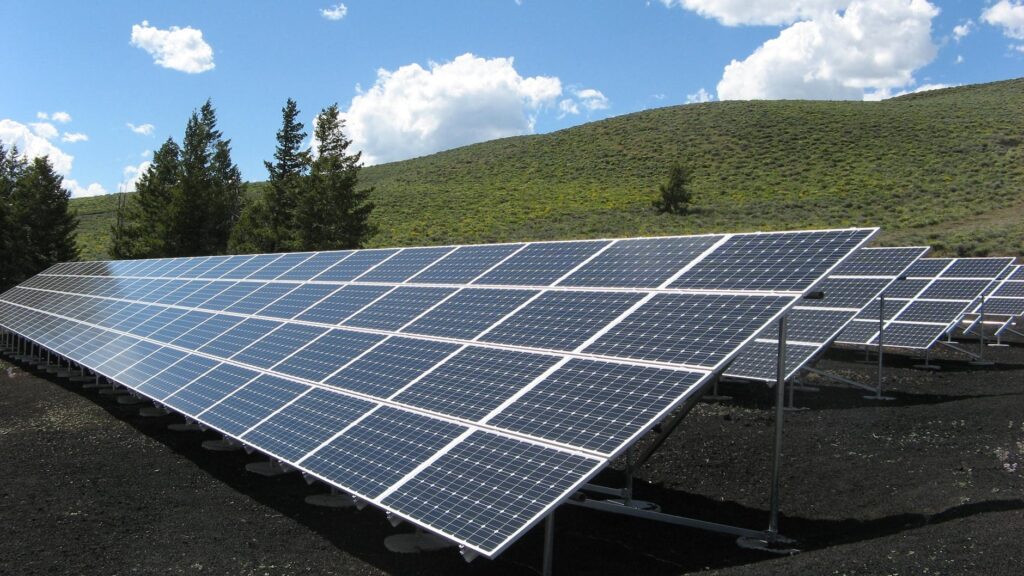Plural Energy Secures $2.33M in Funding, Aims to Accelerate Renewable Energy Investments
Plural Energy, an on-chain investing platform focusing on the global transition to clean energy, has announced its plans to issue tokenized assets for small to mid-sized investments. The goal is to allow anyone to participate in accelerating the global clean energy transition.
Plural Energy has raised $2.33 million in pre-seed funding led by Necessary Ventures and Compound, with participation from Volt Capital and Maven11. The company’s first tokenized investment asset to go live will be a portfolio of solar projects developed by Solaris Energy, planned for release later this summer.
By using its blockchain-powered platform to tokenize clean energy assets, Plural aims to introduce a high-impact asset class to a broader and diverse range of investors. This includes those operating both in and outside of traditional financial institutions.
According to a report by the IEA, an additional $4 trillion needs to be invested into clean energy by 2030 to reach global climate goals. Plural’s strategy aims to help close this funding gap by allowing investors direct access to renewable energy investments.
First Investment Offering: Solaris
Soon, Plural users can invest in a portfolio of operational solar farms across the U.S. developed by Solaris. Investors will accrue dividends whenever the sun shines through Plural’s blockchain-powered smart contract infrastructure.
“Fundraising is challenging in this environment, especially for smaller-scale renewable energy projects. Working with Plural, we see a path towards the democratization of solar finance where anyone can become a part of the revolution that is greening the energy sector,” said Alex Blackmer, CEO & Co-Owner of Solaris.
Plural: Bringing Clean Energy Investing to the Masses
Plural’s user-friendly blockchain investing platform makes investing in renewable energy approachable for every type of investor. The platform offers:
- Top renewable energy partners. Plural works with reputable renewable energy developers and CleanTech companies globally, increasing direct climate impact and yield.
- Diverse, impactful assets. Plural focuses on assets for projects under $100M, often overlooked by infrastructure investors despite their vital role in transitioning the power grid.
- Regulatory compliance. Plural is a registered transfer agent and works directly with SEC-registered broker-dealers, KYC providers, Anti-Money Laundering (AML) Technology, and more to ensure compliance for US investors. Blockchain-powered smart contracts create a transparent ledger of secure, low-cost transactions aligned with SEC rules and regulations.
“Plural is effectively accelerating the infrastructure needed for a brighter future by democratizing this asset class. Anyone can now invest in green energy, track the financials and production data for the projects they invest in, and sell their investments at any time,” said Neil Devani, Founder and Managing Partner at Necessary Ventures.
Blockchain: Making Investing More Efficient and Profitable
Plural partners with renewable energy companies to create security tokens that can be purchased via blockchain-powered smart contracts. This reduces the logistical friction often deterring investors from funding distributed energy projects. The platform automates complicated fund flows, tokenizes and securitizes projects for high-speed, low-cost transactions, and requires fewer financial intermediaries. This results in savings on transaction fees and management fees, delivering additional yield to investors and a lower cost of capital to renewable energy companies.
Plural’s Rapid Growth and Interest
Founded in 2023, Plural has already attracted the support of renewable energy veterans, expanded its team, and cultivated an impressive waitlist of over 40,000 investors for the company’s first on-chain asset launch.
Learn more about Solaris’s portfolio offering on Plural here.
About Plural Energy
Plural Energy is powering the clean energy transition by enabling everyone, from fund and asset managers to alternative retail investors to retirement savers, to invest directly in the clean energy transition. Plural’s user-friendly blockchain platform simplifies green energy financing, expands access to a profitable asset class, and helps close the $4 trillion financing gap needed to meet 2030 climate goals. Learn more at www.plural.xyz.
Original Story at www.morningstar.com
